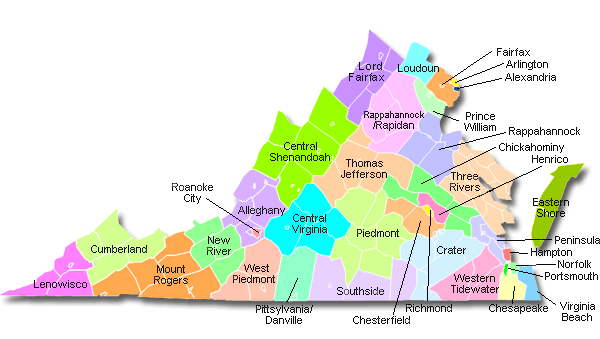To be an electrician in Virginia you’ll need a government Tradesman license to legally perform electrical services within the state. The licensing process is very similar across several tradesmen fields because the state has standardized the entire application process.
Once you obtain the proper license, you are well on your way to making a career for yourself as an electrician in VA.
There are 3 different types of licenses, journeyman, master and contractor, and these are granted by Virginia’s Board of Contractors which sets the regulations for becoming an electrician in the state. This board is under the state’s Department of Professional & Occupational Regulation which is located in Richmond.
At least a GED and 4 years of electrical training are required to get a license in Virginia. Of course you also need to be at least 18 years of age. This VA licensing requirement is mandatory for those performing any electrical job worth over $1,000 within the state regardless of duration.
Types of Virginia Electrician Licenses
The journeyman license requires 2 years of practical work experience in the electrical trade and 1 degree or certification that shows completion of a 2 year educational program from a trade or technical institution or community college;
or you can have 4 years of practical work experience in the electrical trade and 240 hours of formal vocational training;
or 5 years of practical work experience in the electrical trade and 160 hours of formal vocational training;
or 6 years of practical work experience in the electrical trade and 80 hours of formal vocational training;
or if you have a bachelor’s degree from an accredited college or university with a focus on engineering and one year of practical work experience;
or 10 years of practical work experience in the electrical trade which is verified by those who actually observed your electrical work. Yes it can be complicated.
The master license requires 1 year of practical work experience as an already licensed Virginia journeyman or 10 years of practical work experience in the electrical trade. This must be verified by affidavit from people who personally observed your electrical work.
Virginia License Classes
Each license granted in the state of Virginia falls into 3 categories, class A, B or C. Class A carries no limitation on the value of work projects you can take on. B and C both have limits of the dollar amount in terms of contracts or projects you can carry out. For most people Class B, is sufficient if you are just starting out as an electrician.
Renewals & Education Requirements
Keep in mind you will need to renew your Virginia license every 2 years. You’ll also need to complete 3 hours of studies every two years, continuing education, which is required to stay in good standing with the state. This requirement is set to keep your electrical skills fresh for safety reasons.
State Reciprocity in Virginia
The state of Virginia offers reciprocity agreements for the following states: Maryland, North Carolina, West Virginia and Alabama. Comply with all of the terms of each reciprocity agreement in order for your electrician license application to be approved by VA.
For each of these states you’ll definitely need to fill out and provide employment verification as well as other documentation.
View, download or print Virginia’s applications for being a Virginia based electrician
You should also this step by step guide provided by DPOR.
Taking the Virginia Exam
First apply to the Board in order to take the exam which is administered by PSI. All Virginia license tests in the electrical field require that you score at least 70% to pass. The journeyman electrician test contains 70 questions with a time limit of 210 minutes and the master electrician version consists of 90 questions with a time limit of 270 minutes.
Both tests are based on NEC standards. PSI will inform the DPOR of your test result and you should wait for instruction from them.
The journeyman fee for the exam is $100 and the master license exam is a $125 fee. Be sure to study topics focusing on general electrical knowledge, installations, electrical fundamentals; feeders and branch circuits; service and feeder requirements; grounding and bonding; conductors and cables and special equipment.
Additional topics include electrical signs and outline lighting; motors and controls; utilization equipment; lighting; general low voltage requirements; communication systems; fire detection and alarm systems; standards of practice; standards of conduct among others.

Best VA Cities for Electrical Work
If you are planning an electrician career in the state of Virginia you should know which areas will offer you the most work. The population centers with the highest overall electricity consumption are Richmond, Virginia Beach, Chesapeake, Norfolk, all of Northern Virginia. Several other cities in Virginia offer good employment opportunities as well.
Much of Virginia has a low population density which is where you are likely to find less work. The resident population in the rural parts of the state is minimal and the people also tend to have less disposable income for electrical projects. If you have lived in Virginia for awhile you are likely to know which cities are best for electrical work. Best of luck in your new career as an electrician in Virginia!
